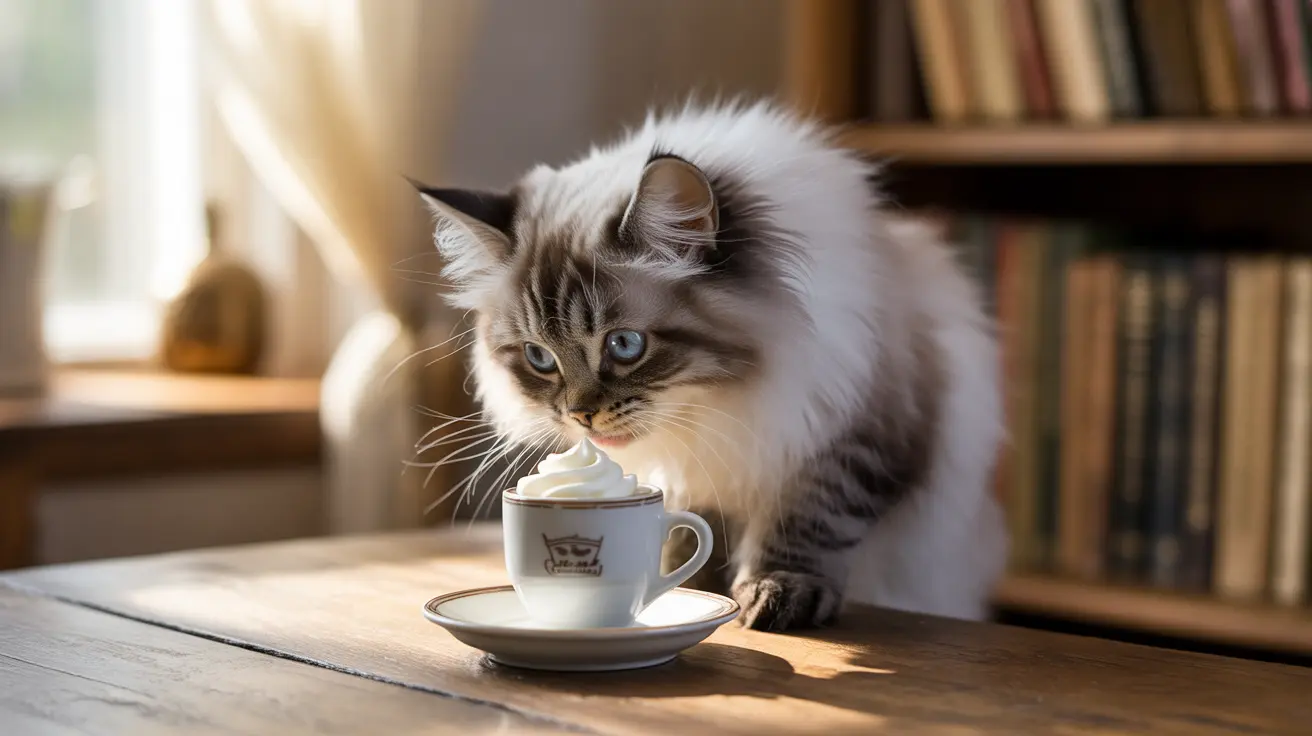Understanding Pup Cups and Your Cat's Health
If you're a cat owner who frequently visits Starbucks, you might have wondered about sharing a popular dog treat - the pup cup - with your feline friend. While these whipped cream treats aren't toxic to cats, there are important considerations before offering one to your pet.
A pup cup (also known as a Puppuccino) is essentially a small serving of whipped cream served in an espresso-sized cup. Though not officially on the menu, these treats have become increasingly popular among pet owners. However, what's safe for dogs isn't necessarily suitable for cats.
The Truth About Cats and Dairy Products
Most adult cats are lactose intolerant, lacking the necessary enzyme to properly digest dairy products. This biological fact makes pup cups potentially problematic for your feline companion. The heavy cream used in these treats contains lactose, which can cause digestive issues in most cats.
Additionally, whipped cream contains sugar and various additives that provide no nutritional benefit to cats. Remember that cats can't even taste sweetness - their interest in these treats typically stems from the fat content rather than any sweet flavor.
Potential Health Risks and Concerns
Digestive Issues
When cats consume dairy products like whipped cream, they may experience several uncomfortable symptoms:
- Upset stomach
- Diarrhea
- Vomiting
- Lethargy
- Decreased appetite
Long-term Health Impacts
Regular consumption of pup cups can lead to more serious health concerns:
- Weight gain due to high caloric content
- Potential pancreatic issues
- Dietary imbalances
- Dental problems from sugar content
Safe Serving Guidelines
If you decide to let your cat try a pup cup, follow these important guidelines:
- Offer only a tiny amount (less than a teaspoon)
- Monitor your cat for any adverse reactions
- Limit treats to very occasional instances
- Never make it a regular part of their diet
Healthier Alternatives for Your Cat
Instead of offering pup cups, consider these cat-friendly alternatives:
- Commercial cat treats specifically formulated for felines
- Small pieces of cooked, plain meat
- Cat-specific "milk" products designed to be lactose-free
- Fresh water (always the best drink option)
Frequently Asked Questions
Can cats safely eat a Starbucks pup cup (Puppuccino)?
While not immediately dangerous, pup cups aren't recommended for cats due to lactose content and unnecessary additives. If offered, it should only be in very small amounts as an occasional treat.
Why is whipped cream in pup cups not recommended for cats regularly?
Most cats are lactose intolerant, and whipped cream contains dairy, sugar, and additives that can cause digestive issues and contribute to weight gain. These ingredients provide no nutritional benefit to cats.
What symptoms should I watch for if my cat eats a pup cup?
Monitor your cat for signs of digestive upset, including vomiting, diarrhea, lethargy, and decreased appetite. If these symptoms occur, discontinue offering pup cups and consult your veterinarian if symptoms persist.
How much pup cup whipped cream is safe to give a cat as a treat?
If you choose to offer a pup cup, limit it to a very small amount - no more than a fingertip's worth. This should be an occasional treat only, not a regular occurrence.
What are healthier, cat-friendly alternatives to pup cups for treats?
Better alternatives include commercial cat treats, small pieces of cooked meat, cat-specific milk products, or freeze-dried meat treats designed specifically for felines.
The Bottom Line
While cats can technically have a small taste of a pup cup, it's not a recommended treat for your feline friend. Focus instead on providing species-appropriate treats that support your cat's health and well-being. Always consult with your veterinarian before introducing new treats into your cat's diet, and remember that the best treats are those specifically formulated for feline consumption.






